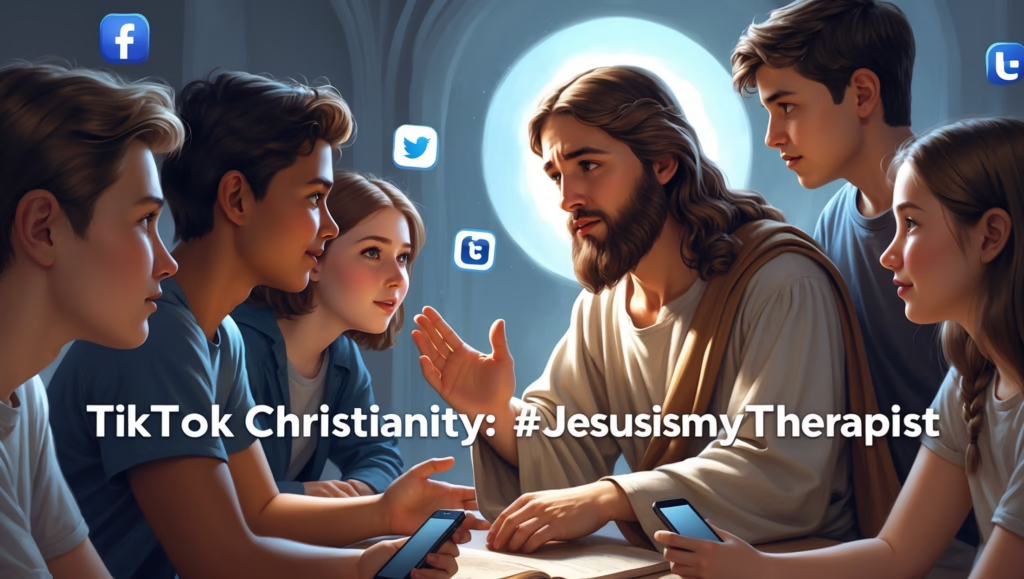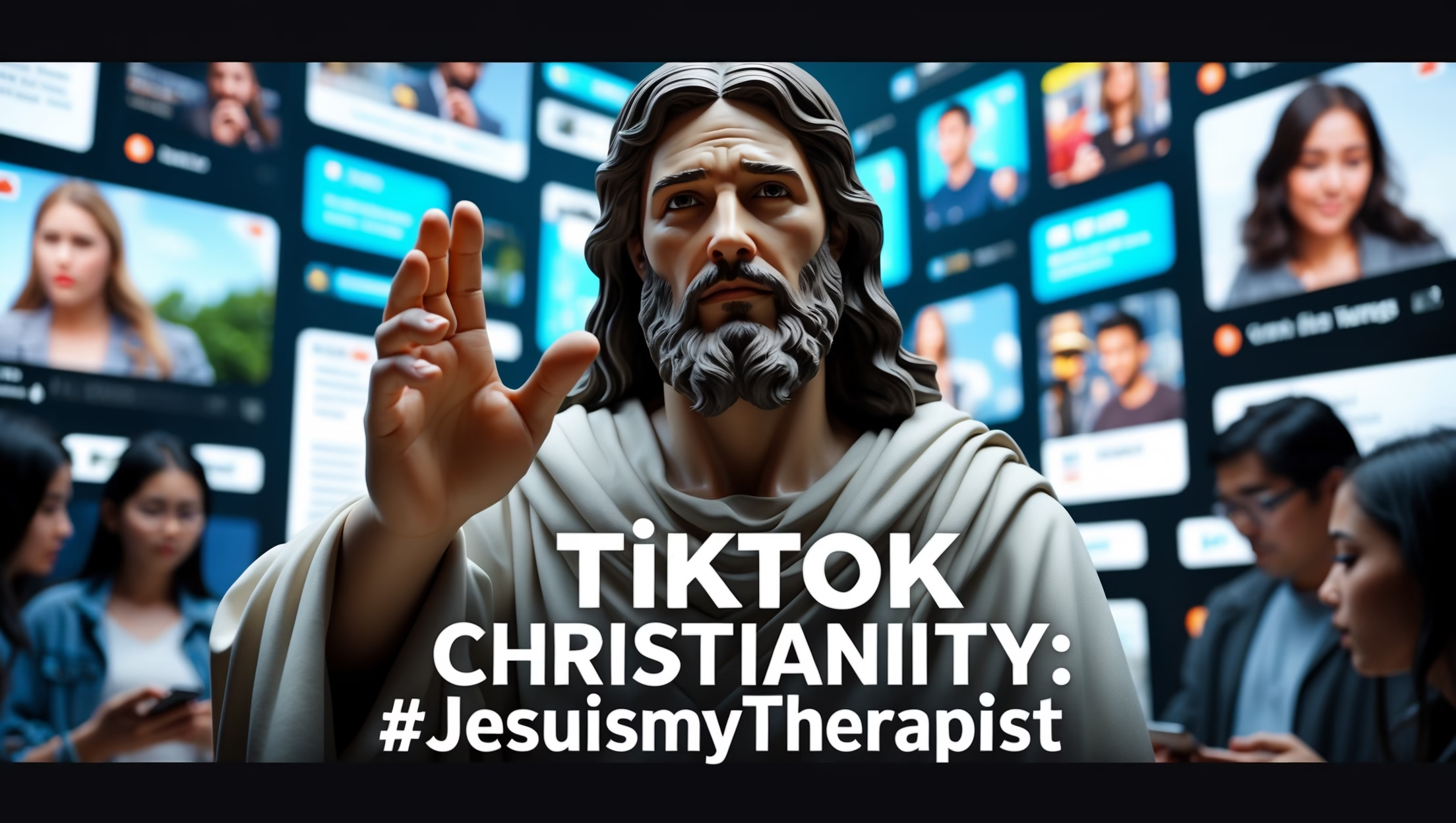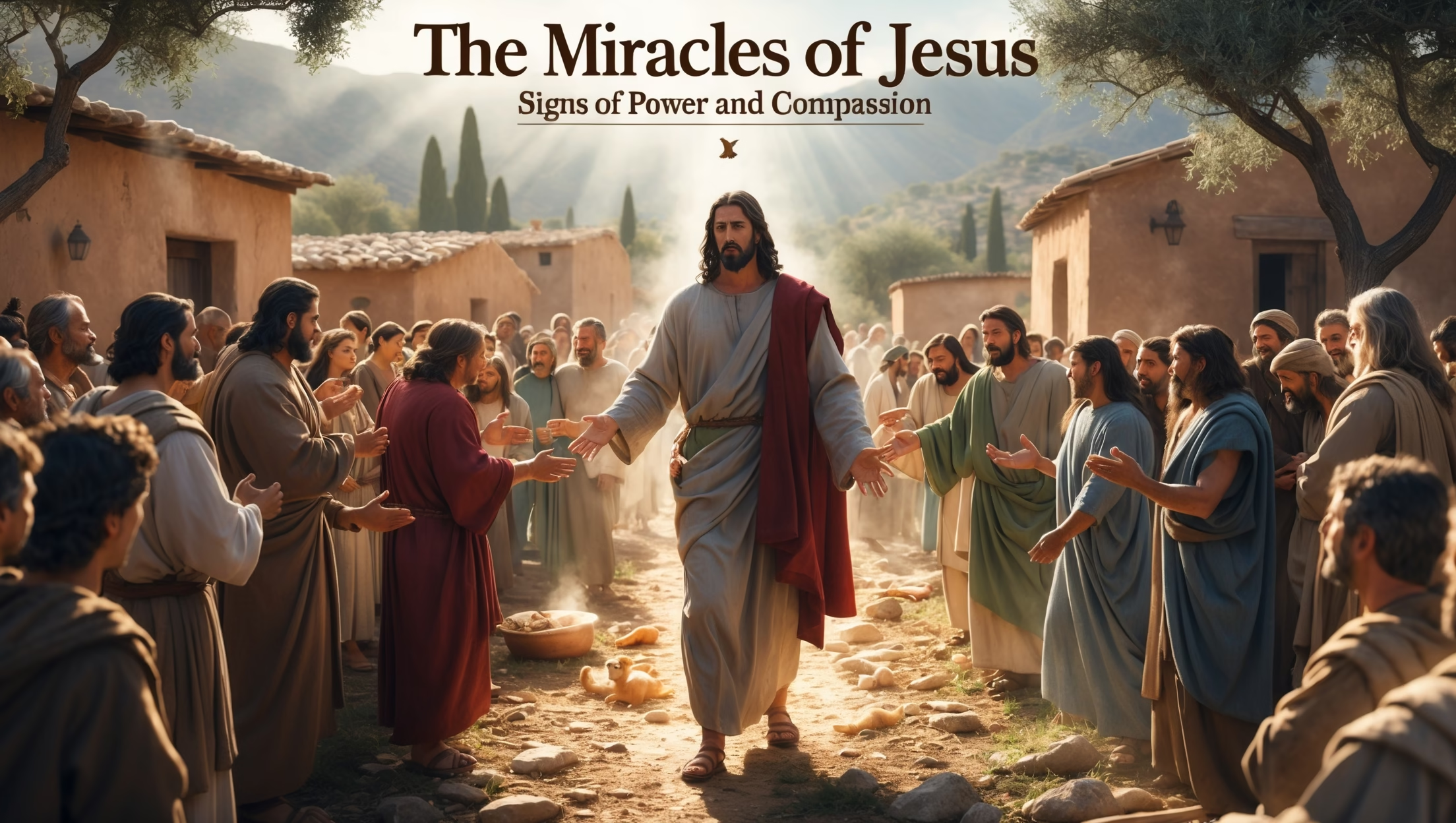Gen Z’s Viral Faith Revolution
In the digital age, Christianity is no longer confined to pews, pulpits, or printed Bibles. Platforms like TikTok have become the new frontier for spiritual engagement, where 60-second videos, hashtags, and viral trends reshape how young people experience devotion. The phenomenon, often tagged #JesusIsMyTherapist, reflects a blend of entertainment, theology, and pastoral care, creating a uniquely generational expression of faith.

The Rise of TikTok Christianity
TikTok’s algorithm favors short-form, relatable content, making it an ideal venue for spiritual creators to reach massive audiences. In 2024, #ChristianTikTok surpassed 42.7 billion views, with 68% of creators under the age of 25. Unlike traditional religious media, these videos prioritize authenticity, humor, and emotional resonance, appealing to young viewers navigating anxiety, social isolation, and spiritual curiosity.
Key Trends
1. Communion Challenges
Users perform mini rituals using everyday items like grape juice shot glasses. These videos often dramatize Christ’s Last Supper with humor or heartfelt reflection, emphasizing:
- Relatability: Bringing sacred practices into everyday spaces
- Engagement: Encouraging followers to participate and share
- Viral Potential: Catchy music, quick edits, and trending hashtags
While some critics decry these videos as irreverent, participants argue they foster personal connection and ritual literacy among teens who may never attend a church service.
2. ASMR Bible Readings
Autonomous Sensory Meridian Response (ASMR) videos, featuring whispered Psalms or softly read parables, have gained popularity as tools for relaxation and spiritual reflection. Benefits include:
- Mental Health Support: Reducing anxiety through calming auditory stimuli
- Accessibility: Making scripture approachable for neurodivergent or sensory-sensitive viewers
- Spiritual Intimacy: Creating a sense of private worship in a digital space
This trend highlights the convergence of faith and wellness, reframing religious devotion as both spiritual and therapeutic practice.
3. AI Jesus Filters
Emerging AI technology allows users to superimpose digital renditions of Jesus onto selfies or live video. These filters aim to:
- Personalize Faith: Presenting Christ as a relatable companion
- Generate Engagement: Encouraging user-generated content and viral sharing
- Spark Dialogue: Users discuss theology, ethics, and representation of sacred figures
Critics warn of oversimplification or commercialization, while proponents emphasize creativity, cultural engagement, and digital evangelism.
Cultural Impact
TikTok Christianity challenges longstanding assumptions about religion, ritual, and authority:
- Decentralization: Spiritual content is no longer curated solely by clergy or religious institutions.
- Democratization: Anyone with a smartphone can produce devotional media, reaching global audiences.
- Hybrid Identity: Faith is expressed alongside memes, trends, and pop culture references, reflecting Gen Z’s holistic media consumption.
The viral nature of #JesusIsMyTherapist demonstrates how digital religiosity can foster real-world engagement, from online prayer circles to local meetups inspired by TikTok communities.
Theological Reflections
While some traditionalists critique the platform’s brevity and humor, TikTok Christianity raises profound theological questions:
- Personal vs. Institutional Faith: How does digital intimacy with Jesus reshape authority, ritual, and doctrine?
- Therapeutic Faith: Can online devotion provide genuine emotional and spiritual healing, paralleling traditional pastoral care?
- Sacred Media Ethics: Where is the line between playful engagement and trivialization of religious symbols?
Theologically, these trends reflect continuity with historical patterns: early Christians innovated in public squares, house churches, and letters; today, TikTok functions as a modern agora for faith expression.
Global Reach and Metrics
TikTok’s reach is unprecedented:
- Content Creation: 68% of Christian TikTokers are under 25
- Engagement: Videos averaging 30–60 seconds achieve millions of shares
- Cross-Pollination: Hashtags like #JesusIsMyTherapist inspire multi-platform expansion (Instagram Reels, YouTube Shorts)
- Inclusivity: Diverse voices—Black, Latino, Asian, LGBTQ+ Christians—share perspectives often marginalized in traditional church media
This digital ecosystem fosters a pluralistic, decentralized Christianity, echoing movements like house churches or guerrilla evangelism in previous centuries.
Why It Matters
TikTok Christianity illustrates how technology reshapes religious practice:
- Youth Engagement: Young people encounter scripture, moral guidance, and communal prayer in a format that resonates with their media habits.
- Mental Health Integration: ASMR and reflective videos provide tangible support for anxiety and social isolation.
- Innovation in Devotion: Faith becomes participatory, creative, and globally connected.
Moreover, it demonstrates a broader trend: the interplay of spirituality and digital culture can democratize access, foster cross-cultural dialogue, and redefine sacred narratives for new generations.









